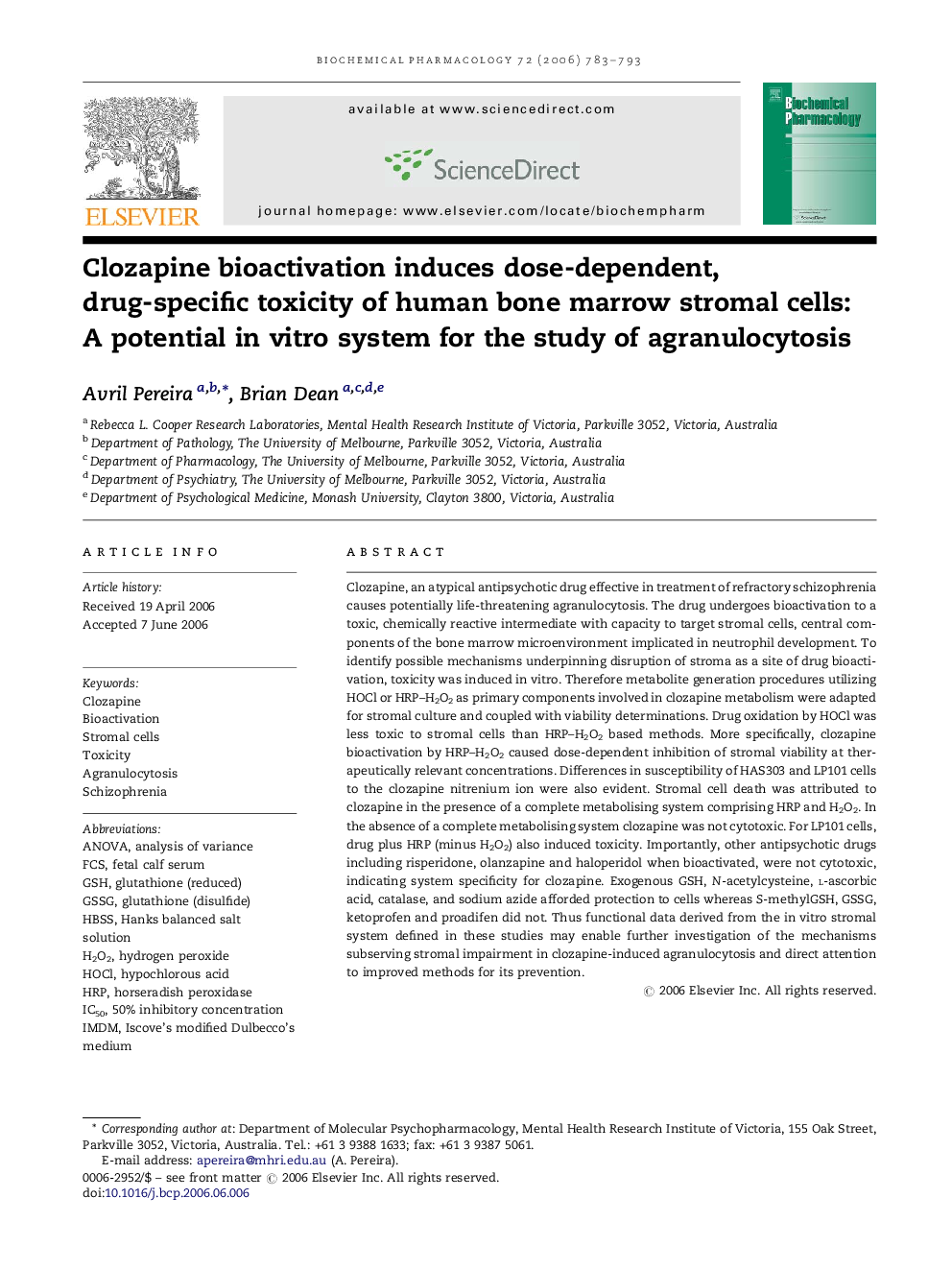| Article ID | Journal | Published Year | Pages | File Type |
|---|---|---|---|---|
| 2515386 | Biochemical Pharmacology | 2006 | 11 Pages |
Clozapine, an atypical antipsychotic drug effective in treatment of refractory schizophrenia causes potentially life-threatening agranulocytosis. The drug undergoes bioactivation to a toxic, chemically reactive intermediate with capacity to target stromal cells, central components of the bone marrow microenvironment implicated in neutrophil development. To identify possible mechanisms underpinning disruption of stroma as a site of drug bioactivation, toxicity was induced in vitro. Therefore metabolite generation procedures utilizing HOCl or HRP–H2O2 as primary components involved in clozapine metabolism were adapted for stromal culture and coupled with viability determinations. Drug oxidation by HOCl was less toxic to stromal cells than HRP–H2O2 based methods. More specifically, clozapine bioactivation by HRP–H2O2 caused dose-dependent inhibition of stromal viability at therapeutically relevant concentrations. Differences in susceptibility of HAS303 and LP101 cells to the clozapine nitrenium ion were also evident. Stromal cell death was attributed to clozapine in the presence of a complete metabolising system comprising HRP and H2O2. In the absence of a complete metabolising system clozapine was not cytotoxic. For LP101 cells, drug plus HRP (minus H2O2) also induced toxicity. Importantly, other antipsychotic drugs including risperidone, olanzapine and haloperidol when bioactivated, were not cytotoxic, indicating system specificity for clozapine. Exogenous GSH, N-acetylcysteine, l-ascorbic acid, catalase, and sodium azide afforded protection to cells whereas S-methylGSH, GSSG, ketoprofen and proadifen did not. Thus functional data derived from the in vitro stromal system defined in these studies may enable further investigation of the mechanisms subserving stromal impairment in clozapine-induced agranulocytosis and direct attention to improved methods for its prevention.
